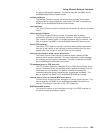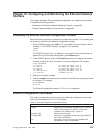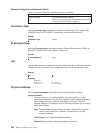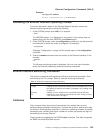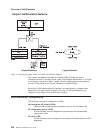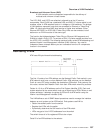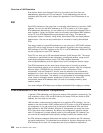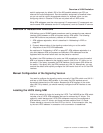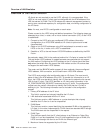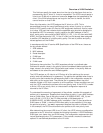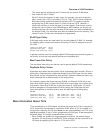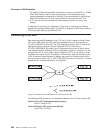
Broadcast and Unknown Server (BUS)
A LAN emulation service component responsible for the delivery of
multicast and unknown unicast frames.
The LES, BUS, and LECS are collectively referred to as the LE service
components. Each ELAN has a dedicated LES and BUS. LE clients reside in end
systems, either in ATM-attached hosts or in bridges or LAN switches. The bridges
or LAN switches represent hosts that are connected to Ethernet or Token-Ring
LANs. LE clients provide a MAC-level service to higher level software. Either
Ethernet IEEE 802.3 or IEEE 802.5 Token-Ring LANs can be emulated, but all
stations on an ELAN must be of the same type.
The function that bridges between Token-Ring or Ethernet LAN segments and
ELANs is called a Proxy LEC. To emulate a LAN, LE clients request services from
the LECS, LES, and BUS. The following sections briefly review ATM addressing and
pertinent Interim Local Management Interface (ILMI) functions. You need to
understand these concepts before you can understand how the LE components
function in the network.
Addressing in ATM
ATM uses 20-byte hierarchical addressing:
End System
┌─ Identifier ──┐ ┌ Selector
┌───────── Network Prefix────────────┐ │ (ESI) │ │
1 1314 1920
┌──────────────────────────────────────┬─────────────────┬──┐
││││
││││
││││
││││
└──────────────────────────────────────┴─────────────────┴──┘
The first 13 octets of an ATM address are the Network Prefix. Each switch in your
ATM network must have a unique Network Prefix. ATM switches use the Network
Prefix to route VCC setup requests the destination ATM switch. End systems, like
this router, retrieve their Network Prefix from their ATM switch when they activate.
Octets 14–19 of an ATM address are the End System Identifier (ESI). Each end
system attached to the same switch must use a disjoint set of ESIs. When an end
system activates, it attempts to register its ESIs with its ATM switch using the
Interim Local Management Interface (ILMI).
The ILMI defines a set of SNMP-based procedures used to manage the interface
between an end system and an ATM switch. End systems use ILMI to:
v Obtain the network prefix from the switch
v Register their ESIs with the switch
v Dynamically determine the UNI version of the ATM switch
v LECs may get a list of LECS addresses from the switch
The switch forces all of its registered ESIs to be unique.
Octet 20 of an ATM address is the selector.
Overview of LAN Emulation
Chapter 20. Overview of LAN Emulation 257



